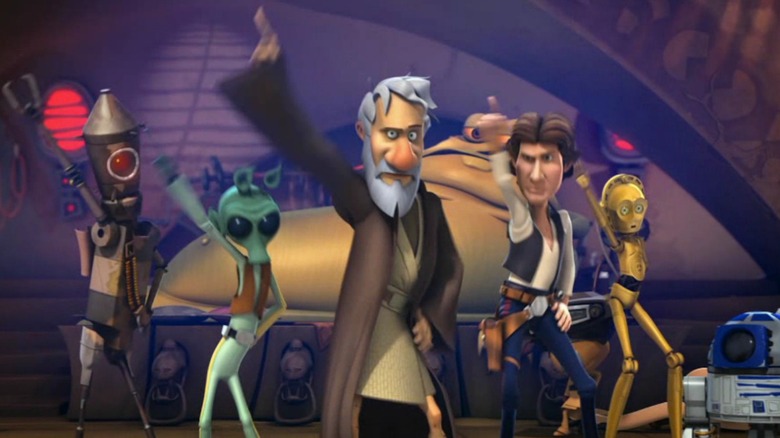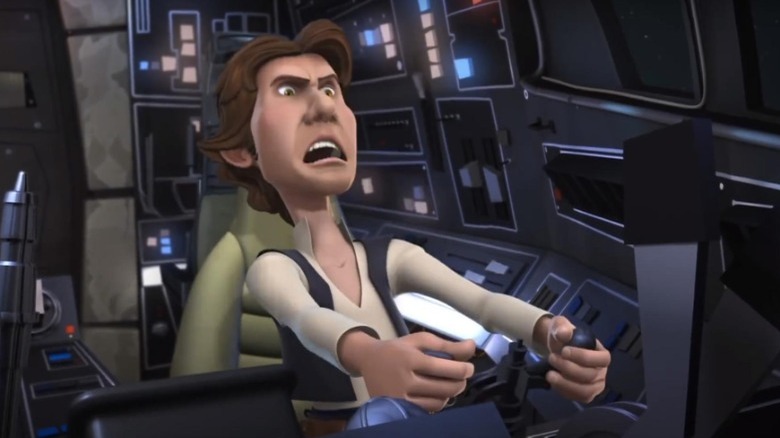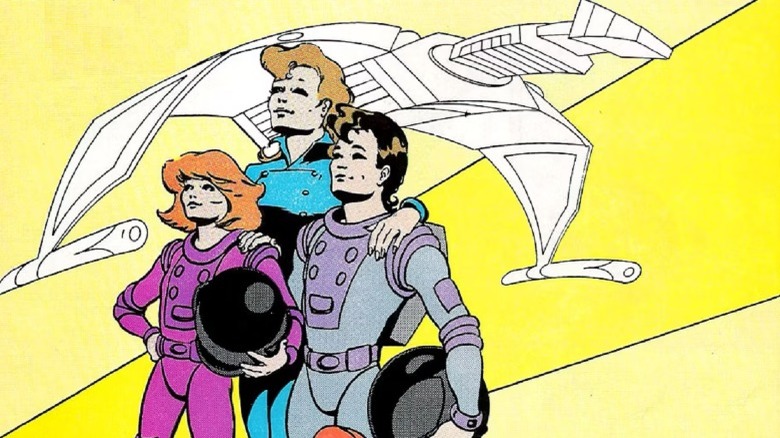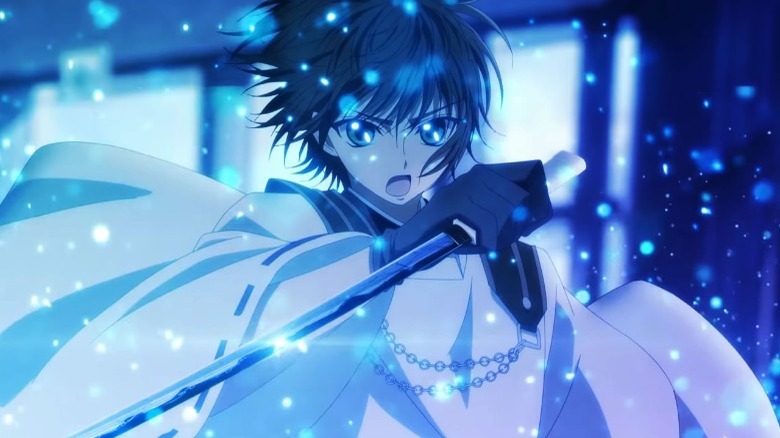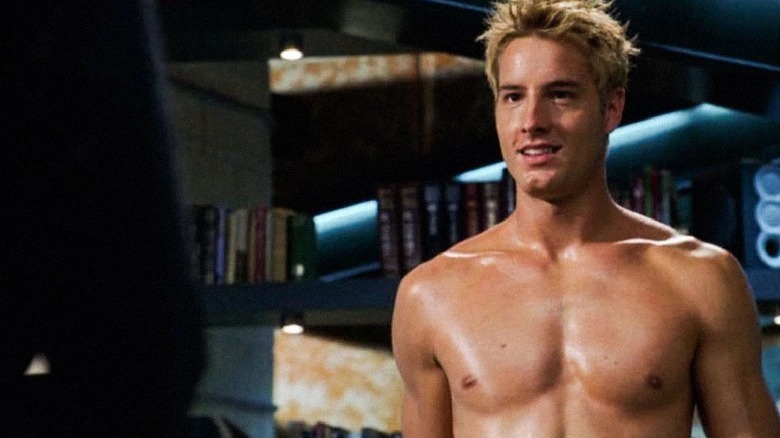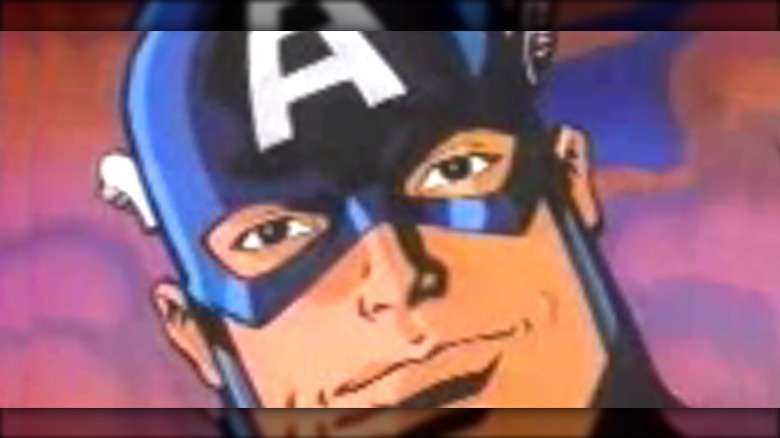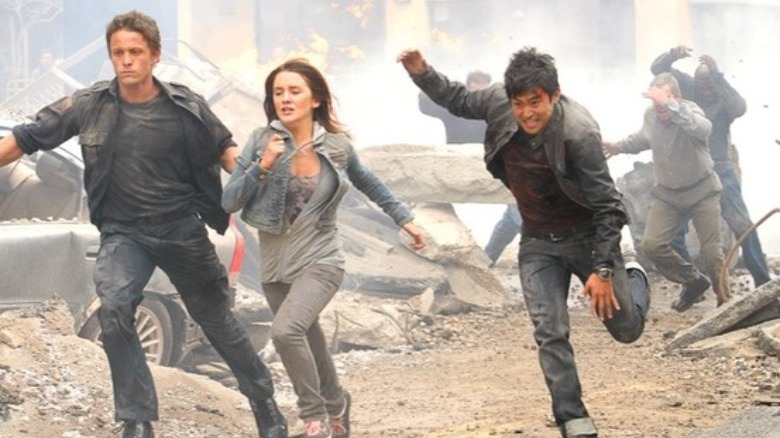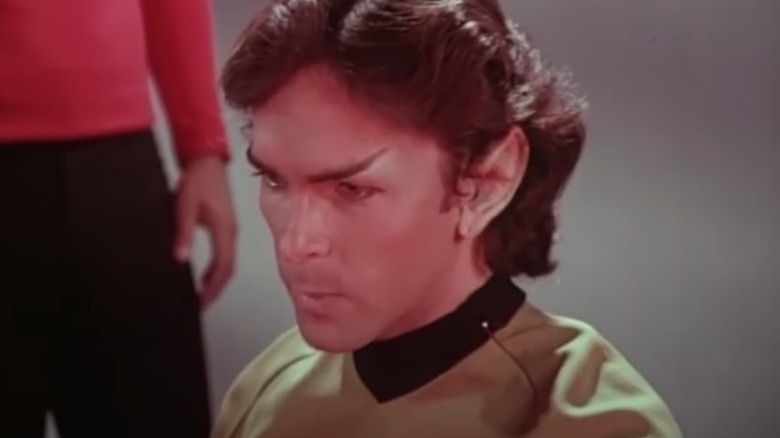Hyped-Up Sci-Fi TV Shows We'll Never Get To See
With the rise of the streaming era and the dominance of social media came a keener awareness of if — and when — your new favorite show is going to get the axe. But knowing the end is coming doesn't make it hurt less. In fact, there's a growing resentment around shows that clearly have a fanbase, but that don't pull in subscribers in large enough numbers to satisfy executives. After the fates of Netflix's "The Dark Crystal: Age of Resistance" and AMC's "Moonhaven," which was killed after a promising early renewal, we're having more trouble falling in love with new shows than ever before.
But there's something even worse than a brief fling with a great new series: getting a glimpse of one, and then never being able to watch any of it at all. It's tough for any new show, especially high-budget science fiction series, to get out of pilot episode limbo, but some pre-broadcast cancellations hit harder than others. Lots of genre fans have a story about the one that got away. Let's look back at the sci-fi shows that could have been beloved hits, but never got the chance.
Star Wars Detours
Seth Green and his "Robot Chicken" team have long been geek favorites. While they've tackled everything from "Barbie" to the Legion of Doom, their love for "Star Wars" is particularly strong. With running gags like Seth MacFarlane voicing a perpetually peeved Palpatine and bang-on parodies of the franchise's biggest scenes, "Robot Chicken" has covered most of the original trilogy movies — and it's not afraid to take some delightfully cheap shots while doing so. In 2012, Lucasfilm offered the team a chance to create a CGI-animated comedy in the vein of "Tag and Bink," with voice work from franchise stars like Billy Dee Williams. Any "Star Wars" fan would think that was a lock.
Unfortunately, "Star Wars Detours" never went to air. Footage was shown at the Star Wars Celebration VI event that year, but officially, that was it. Just two months later, Disney bought Lucasfilm. The ensuing reorganization put 39 completed "Detours" episodes in the closet, and led to the cancellation of "The Clone Wars." Besides that original sizzle reel, all that remains is the leaked episode "Dog Day Afternoon," which stars Weird Al Yankovic and Andy Richter as bounty-hunting bugs. Ten years on, Seth Green isn't hopeful the lost "Detours" will ever come out. But if "The Clone Wars" received new life under the Disney umbrella, maybe hope isn't lost.
The Young Astronauts
For some of us, the '80s was the era of the Saturday morning cartoon. We'd get up at a reasonable time and sit, enthralled, by the original "Teenage Mutant Ninja Turtles," "ThunderCats," "The Smurfs," "Transformers," and more. Several shows, including the one featuring transforming vehicles, were distributed by Marvel Productions, which worked with the company's comic book division for promotion. In 1986, Marvel Productions had an animated series ready to launch for NASA-obsessed kids called "The Young Astronauts." Inspired by an actual NASA program and starring a wholesome family, it would have explored the solar system with help from a stowaway cat and some well-meaning kids.
A six-issue tie-in comic from Marvel's Star imprint was in production when the series' pilot episode, which has yet to turn up on an old VHS tape, aired on either January 25th or 26th. Informative shorts with astronauts had been airing since the 11th. And then, on January 28th, the Challenger space shuttle exploded, killing all aboard, including Christa McAuliffe, who was set to be the first teacher in space. "The Young Astronauts," comic miniseries and all, vanished. All that remains are a few alleged animation cells and a complicated court case over the licensing and advertising profits.
Tokyo Babylon 2021
To manga fans, the all-female group CLAMP is a big deal. They won us over in 1989 with their wondrously detailed take on Vedic theology, "RG Veda." Their follow-up, "Tokyo Babylon," which stars an occult detective named Subaru Sumeragi, laid the groundwork for the series that pulled in readers worldwide, "X," and featured one of the first mainstream examples of a shounen ai story, with an emotional romance between two male characters. An OVA adapted a couple chapters of "Tokyo Babylon" in the '90s, but a full anime adaptation wasn't announced until 2020.
The first trailer for "Tokyo Babylon 2021" excited fans, but it took less than a month for one savvy viewer to notice that something was wrong. Reddit user 500scnds realized that at least two major character designs were plagiarized from a K-pop band and a line of high-quality collectible dolls. The series producer apologized, and delayed the show in order to adjust the designs in question. Unfortunately, next March, production company GoHands canceled the series, as an internal investigation revealed that the plagiarism situation was much worse than those first swipes indicated. A fresh restart was planned, but nothing's come of it yet.
Aquaman (Mercy Reef)
Since 2012, The CW has specialized in cheesy but fun DC shows like "Legends of Tomorrow" and "The Flash," most of which take place in the shared "Arrowverse." However, if things had worked out differently, this universe could have kicked off six years earlier, and might've been called something like, well, the "Aquaverse." Unfortunately, once again a media merger killed off something that could've been special.
Hot off the success of "Smallville," creators Al Gough and Miles Millar produced a pilot for an Aquaman series for The WB. Its cast included future "This Is Us" star Justin Hartley, who later played Green Arrow on "Smallville," as the title hero. He was joined by enthusiastic Lou Diamond Phillips as Arthur Curry's adoptive father and Adrianna Palicki — who would also see her "Wonder Woman" series shelved — as a villainous siren. Unfortunately, Warner Bros. was already discussing a joint venture with CBS; the two companies ultimately combined The WB with UPN to create The CW. In the aftermath, the new network decided not to go forward with the series. However, it did upload the pilot to iTunes in July 2006, where it became a hit. Sadly, positive fan reactions, a neat introductory villain, and an emphasis on environmental causes weren't enough to pull this origin story out of TV limbo. Hey, at least we got Jason Momoa.
Captain America
Today's game of tug-of-war between Marvel and Sony began earlier than the mid-'90s, but that's when everything came to a head. Years of bad decisions, including exhausting events like Spider-Man's "Clone Saga" and a habit of manipulating collectors with gimmicky variant covers, were killing the Marvel name. On the verge of bankruptcy, Marvel sold off key licenses to film studios — including Sony — and began cutting costs, dooming some intriguing projects. One of these was a "Captain America" cartoon from Saban Entertainment, the company behind the beloved "X-Men: The Animated Series"
Unfortunately, all that remains of "Captain America" today is an animated promo and speculation about why the cartoon got the axe. Set in World War II, the show would've pitted Captain America against a familiar crew of bad guys led by the Red Skull, but the writers weren't allowed to call the Nazis, well, Nazis. For a time, rumors suggested that this tension resulted in the series' cancelation. However, according to writer Steve Englehart, who revitalized Cap's popularity in the '70s with artist Sal Buscema, censorship didn't kill the cartoon. Marvel's financial woes did. As it turns out, the only villain that Cap can't defeat is capitalism.
Day One
It's hard to overstate how big a phenomenon "Lost" was in the 2000s. For six seasons, we were invested in those castaways and the bizarre happenings on that secret island. So, naturally, as the series neared its end, its cast and crew were in heavy demand. Former "Lost" producer Javier Grillo-Marxuach, for example, built a solid resume and a geek-friendly reputation by spearheading other intriguing fan-favorite shows.
In 2009, one of Grillo-Marxauch's big projects was a promising series called "Day One." However, despite receiving a hype page on NBC's website and a hot timeslot after the Olympics, it never got past day zero. First, the series order was downgraded from 13 episodes into four, transforming it into a miniseries. Then, it was going to be a two-hour TV movie, with the possibility for more if the numbers justified it. Finally, in May 2010, the show simply disappeared.
Since "Day One" was a mystery-thriller in the vein of "Lost" and "The Event," plot details are scarce but enticing. Focused on the residents of a California apartment building, the series dealt with an unexplained event, possibly extraterrestrial in origin, that causes a series of cataclysmic failures across the globe. It's a shame that we never got to see "Day One," but at least there are plenty of apocalyptic sci-fi novels that scratch the same itch. Try John Barnes' "Daybreak" trilogy, which is predicated on almost the exact same premise. It's a fun ride.
Star Trek: Phase II
Can you imagine a time without new entries in the "Star Trek" galaxy? If you're under 50, it's nearly impossible. But the 1970s were a dry time for the original Trekkies, whose passion was kept afloat by a thriving fandom and the rise of the convention circuit. It took until 1979 for the drought to end with the release of "Star Trek: The Motion Picture." What only the most hardcore fans know, though, is that the Enterprise's new voyage was supposed to begin a few years earlier, and that the movie was actually a heavily reworked series pilot.
"Star Trek: Phase II" was set to bring back almost the entire original cast — Leonard Nimoy declined to return — alongside new crew members, including the Vulcan Xon (David Gautreaux) and the "esper" Ilia (Persis Khambatta), who ended up appearing in the film. With new sets, new costumes, and new, effects-heavy scripts in the pipeline, Paramount and its president, Michael Eisner — yup, the future Disney CEO — began to panic at the series' mounting budget. However, the fanbase's potential reaction to a series cancelation caused anxiety, too. To save face, make the best of the sunken costs, and keep "Star Trek" alive, "Phase II" quietly began transforming into a movie in 1978, with "The Day the Earth Stood Still" director Robert Wise at the helm. The film revitalized the franchise; later, "Star Trek: The Next Generation" reused a handful of the concepts and scripts left over from the series' failed launch.
